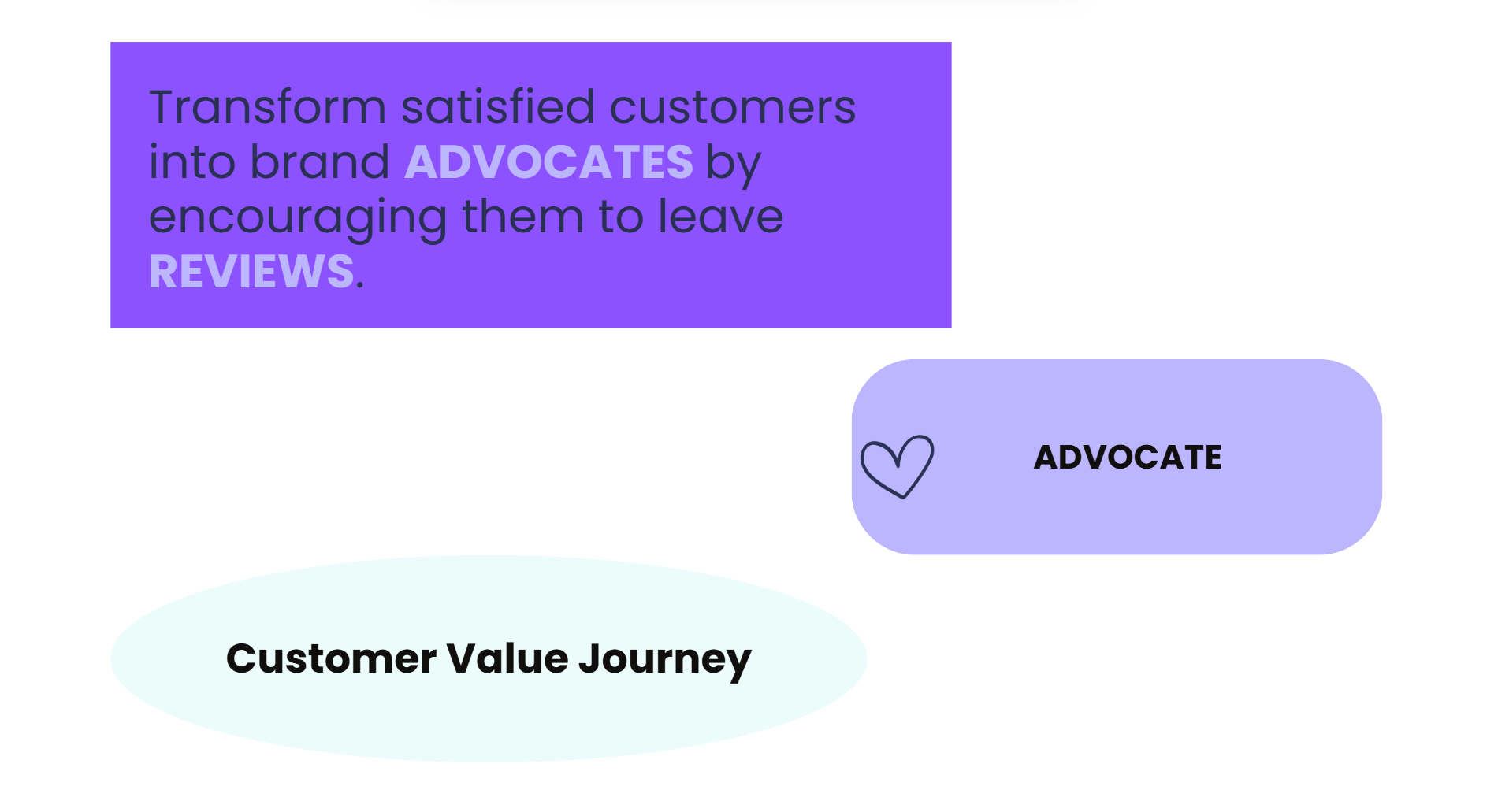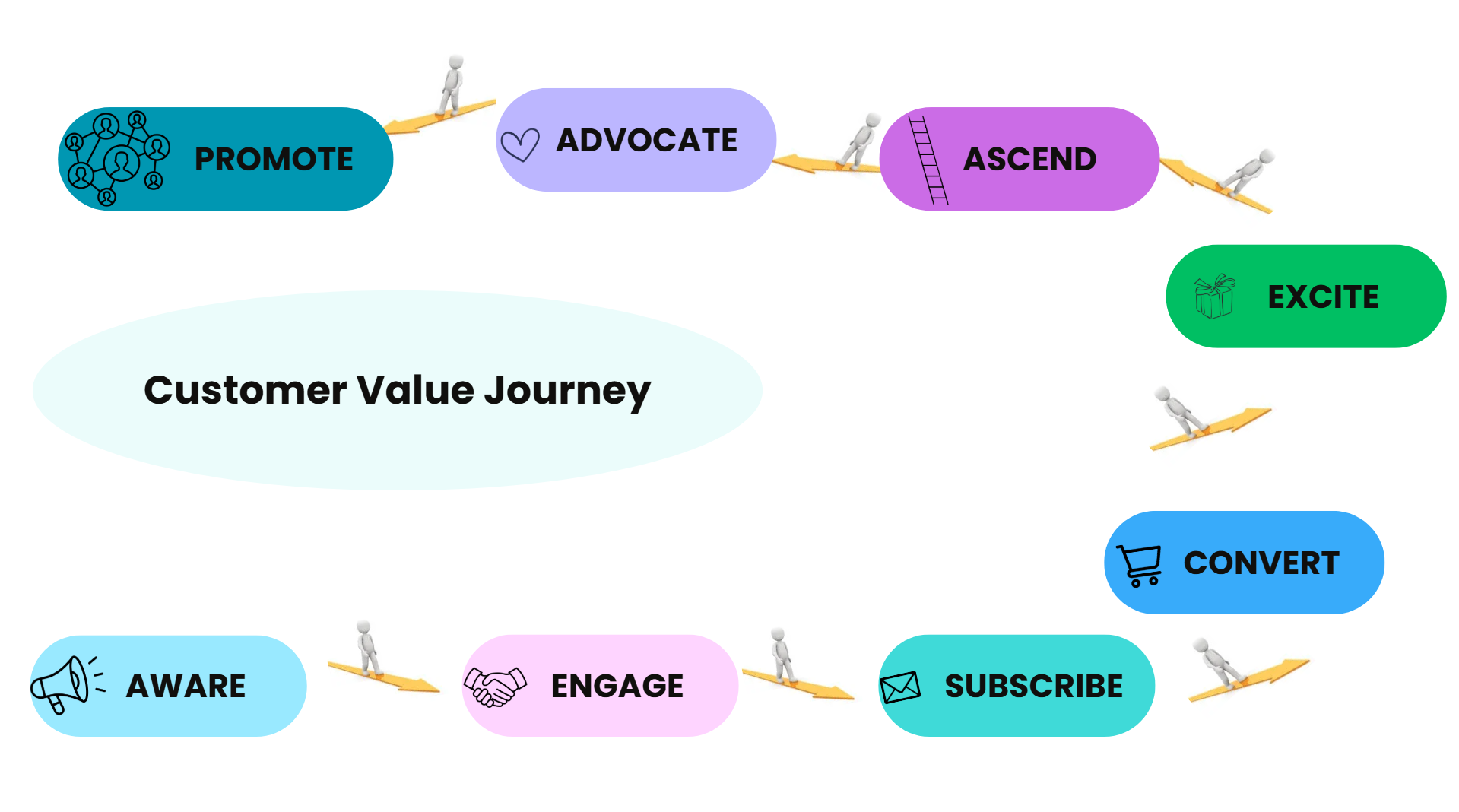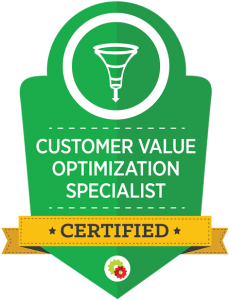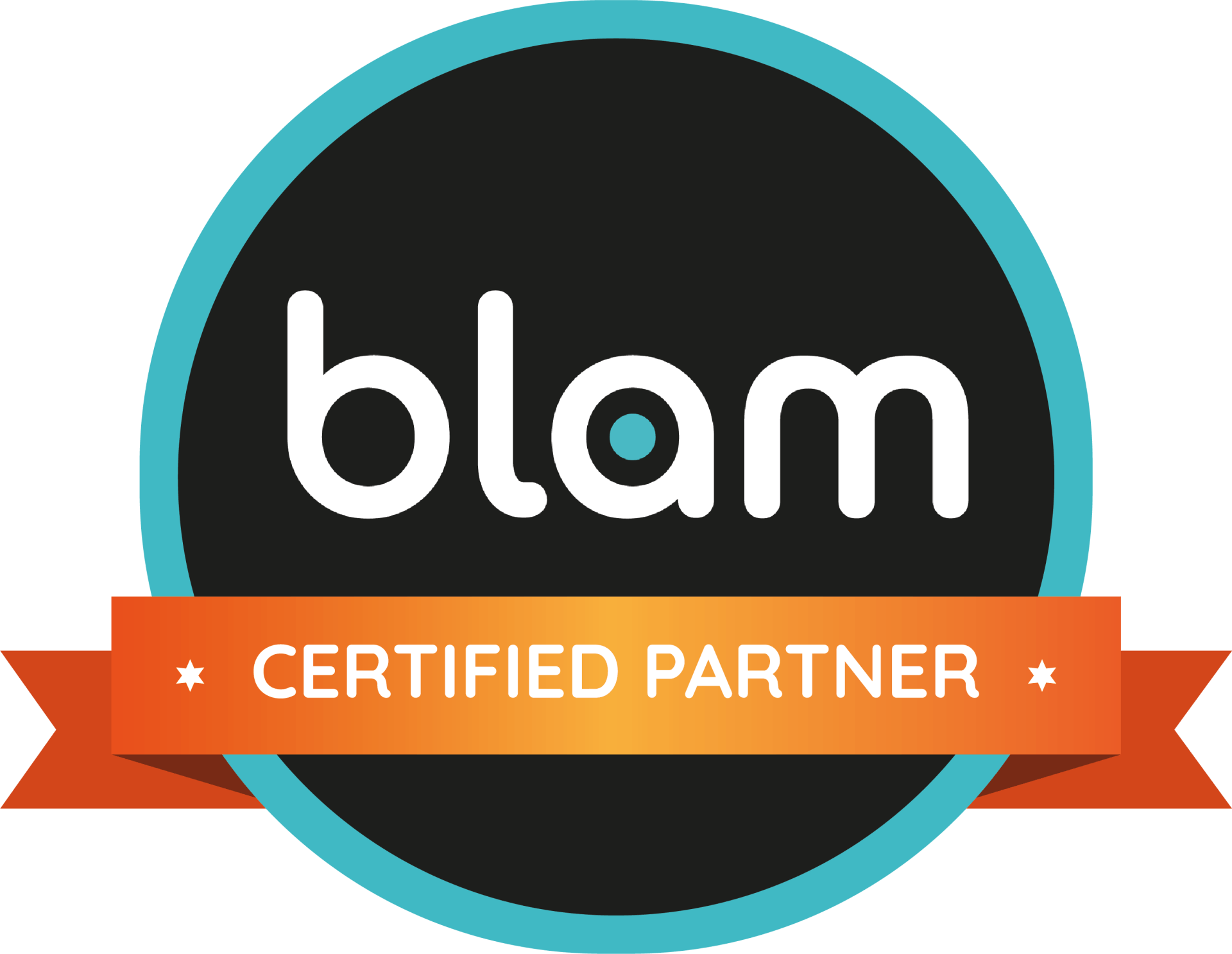The Customer Value Journey - Step 7: Advocate
Advocate - Welcome back to our 8-part series on the Customer Value Journey (CVJ) in Digital Marketing! Now we are onto the "Advocate" stage.

Welcome back. In the previous installment, we covered the Ascend stage, where we discussed how to elevate your customers' experiences and encourage repeat purchases.
Imagine you're still hosting the Epic party.
Your guests are thrilled, enjoying the VIP area and the special gourmet tasting you’ve offered. They’re so impressed that they can’t stop talking about it with their friends and the mention of it brings a smile to their face. In the business world, this is where you turn satisfied customers into advocates who actively refer others to your business.
Let's look at a business example.
Imagine you run a handmade soap business in Dingle. Your customers love the natural ingredients, delightful scents, and beautiful packaging of your soaps. They are so satisfied that they’re eager to refer you to friends and family, and share their positive experiences on social media.
To encourage advocacy, you might:
- Referral Programs: Create a program where customers earn rewards for referring new customers. For example, offer a discount on future purchases for every new customer they refer.
- Social Sharing Incentives: Encourage customers to share their experiences on social media by offering discounts or freebies for posts that tag your soap business.
- Customer Testimonials: Collect and showcase positive reviews and testimonials from happy customers on your website and social media channels.
- Exclusive Events: Host exclusive events like soap-making workshops or special product launches for your loyal customers and their friends.
- Community Engagement: Foster a sense of community by creating a loyal customer base that feels connected to your brand.
The 'excellent, eminent experts' of Right Hand Consulting (yes, I'm still trying to get out of the dog house...) are back with more insights used when working with our clients to turn satisfied customers into passionate advocates. See what they're saying:
- Personalized Thank-You Notes: Send personalized thank-you notes or small gifts to your most loyal customers as a token of appreciation. - remember, we're fostering a happy customer. Little things really can matter.
- Loyalty Programs: Implement a loyalty program that rewards customers for their continued patronage and encourages them to refer others.
- User-Generated Content: Feature user-generated content such as photos and stories from your customers, highlighting their positive experiences with your brand.
- Promote your customers too. Consider if you can promote their business, or simply feature a comment, or video etc they shared in recognition for their being them. Good vibes all around.
So, we’re creating referral programs, encouraging social sharing, and showcasing customer testimonials to build advocacy.
Did you know?
Did you know that 72% of customers who have a positive experience with a business will share that experience with six or more people? On the flip side, 13% of dissatisfied customers will share their negative experiences with 15 or more people. This highlights the importance of turning satisfied customers into advocates for your business.
Additionally, businesses with customer advocacy programs see an average 16% increase in profits compared to those without such programs. This means that investing in building strong relationships with your customers can have a significant positive impact on your bottom line. Please do talk to us if you'd like some guidance on this.
Ready to continue your journey? Stay tuned for Part 8, where we'll delve into the Promote stage of the Customer Value Journey. Until then, happy advocating! 🚀

Contact Us












